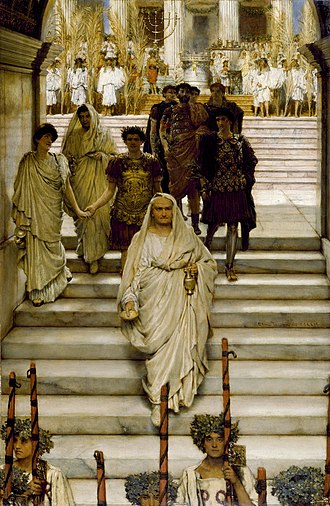Discover Your Roots
SIGN UPDiscover Your Roots
SIGN UPFlavian is a male name of Greek origin, meaning "Yellow" or "Blonde." Historically, it has been associated with significant figures such as members of the Flavian dynasty of Roman emperors and religious leaders like Flavian of Ricina and Flavian I of Antioch. The name also extends to modern individuals like Flavian Zeija, a prominent Ugandan lawyer and judge. Additionally, it has been linked to maritime history through the Italian cruise ship SS Flavian. The name's relevance is further highlighted by its association with the Constantinian dynasty and the Flavian Amphitheater (the Colosseum). Overall, Flavian carries a strong historical and cultural significance, representing brightness and prominence.

The Flavian dynasty, ruling the Roman Empire from 69 to 96 CE, was the second dynastic line of emperors after the Julio-Claudians, led by Vespasian and his sons, Titus and Domitian. Rising to power during the civil war of 69 CE, known as the Year of the Four Emperors, the Flavians faced significant challenges before establishing their reign. Their era witnessed historic, economic, and military events, including the eruption of Mount Vesuvius, the siege of Jerusalem, conquests in Great Britain, and border defense expansions. Economically, Vespasian reformed taxes, and Domitian increased the silver content of Roman coinage. Notably, Titus initiated a massive building program in Rome, including the iconic Colosseum. The Flavian dynasty came to an end with the assassination of Domitian in 96, marking the transition to the Nerva-Antonine dynasty. Unique among the Principate Era's dynasties, the Flavians consisted of one man and his two sons, without extended or adopted family. The rise of the Flavians from relative obscurity to prominence in just four generations is a testament to their significant impact on Roman history.




All images displayed on this page are sourced from Wikipedia or Wikimedia Commons.We use these images under their respective Creative Commons or public domain licenses. Wherever applicable, author attributions and license information are provided. If you believe an image is used incorrectly or outside its license terms, please contact us so that we can review and correct the issue.